Paris floods: Seine set to peak as more rain forecast
- Published
Floodwaters have forced the Louvre to close and move its precious artworks, as James Reynolds reports
Floodwaters in Paris continue to rise with the River Seine due to hit a peak of up to 6.5m (21ft) later on Friday.
The world-famous Louvre and Orsay museums have been closed so staff can move priceless artworks to safety.
The number of dead in the floods has now risen to at least 15 - 10 in southern Germany, two each in France and Romania and one in Belgium.
More downpours are forecast for the weekend across a band of central Europe from France to Ukraine.
Several towns in southern Germany have been devastated. Belgium, Austria, the Netherlands and Poland have also been affected.
Thousands of people have been forced from their homes.
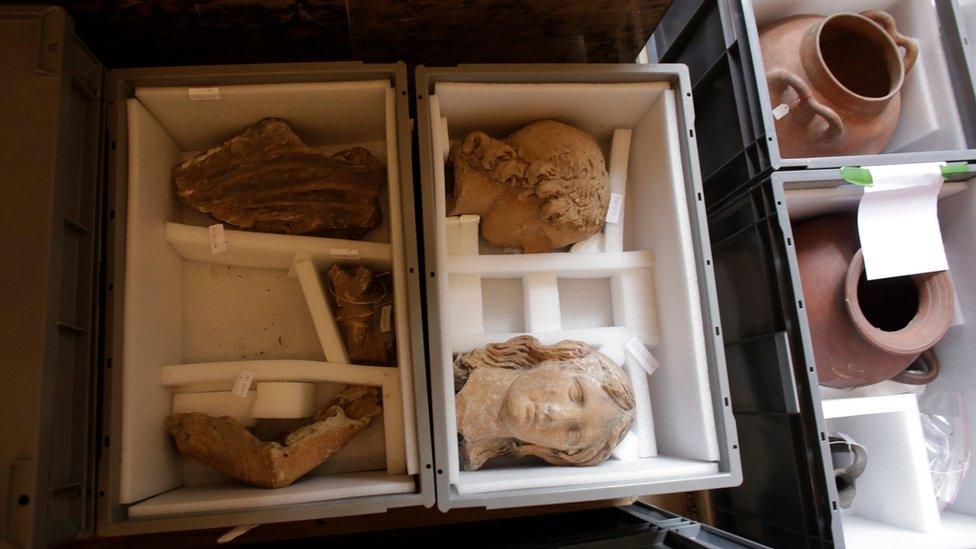
Artworks are packed away for safe-keeping at the Louvre

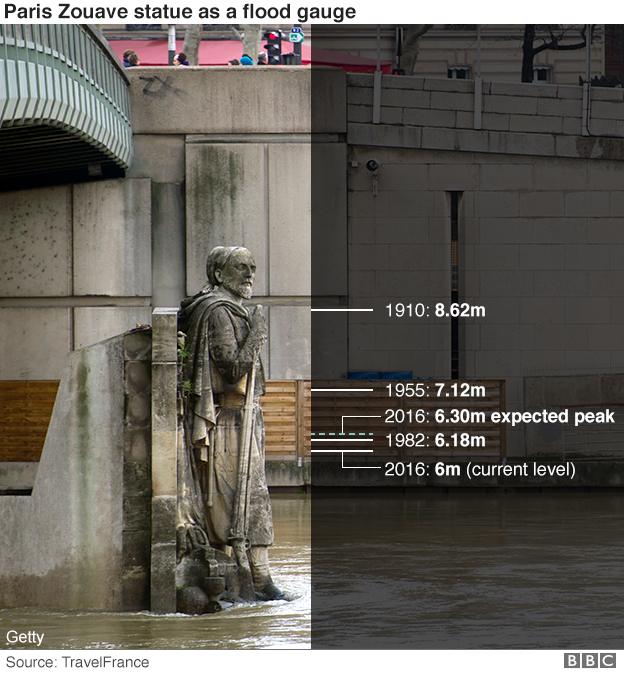
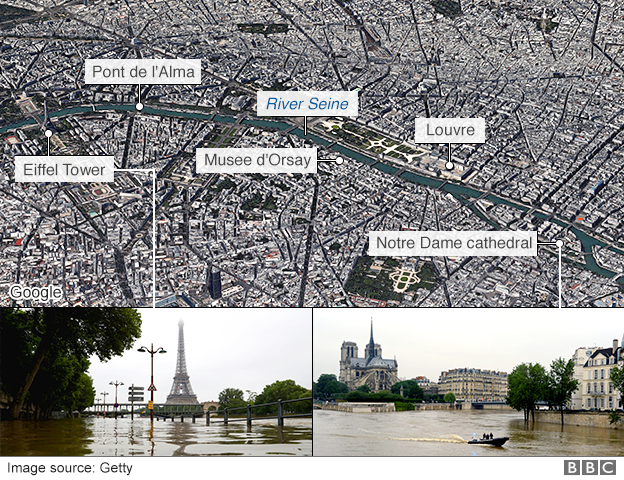
French President Francois Hollande said the weather was a serious climate phenomenon and a global challenge.
He is to declare a state of natural disaster in the worst-hit areas, which will free up emergency funds.
In Paris, emergency barriers have been put up along the Seine, a number of bridges have been closed and tourists boats have been banned from sailing on the river.

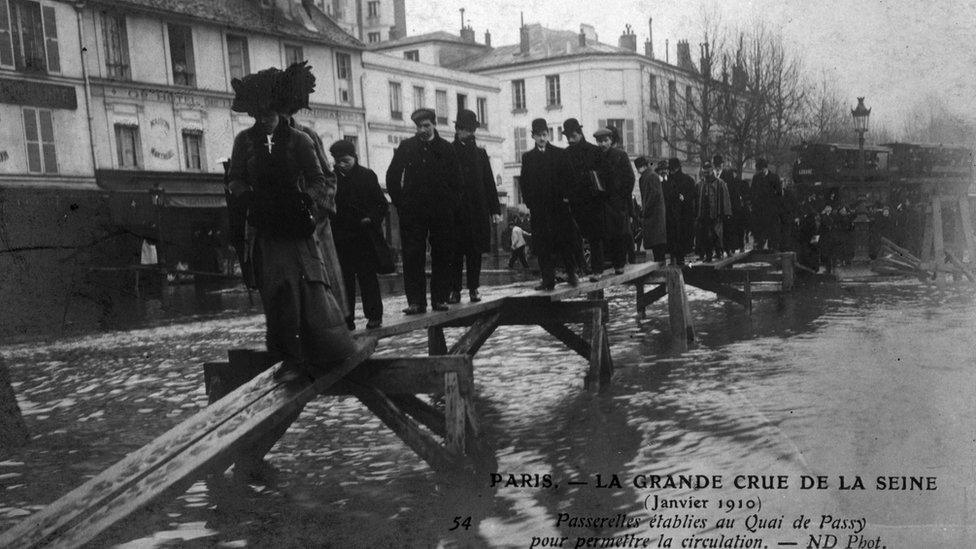
During the 1910 floods, engineers built wooden walkways for people to navigate flooded streets

The Seine - which has risen to six metres - has not reached current levels in Paris since 1982, according to the environment ministry.
It previously reached 6.18m in 1982, 7.1m in 1955 and 8.62m in 1910.
It is expected to reach at least 6.3m this evening local time and 6.5m in a "worst-case scenario", the ministry said, with the water level remaining at those levels throughout the weekend.

Another headache for Hollande - Analysis by Hugh Schofield, BBC News, Paris
Trains operating at only 50%, strikes on the metro, floods on the Seine, the Louvre closed, violent protests against the government's labour law, fears for the Euro 2016 football tournament - the list goes on.
If it wasn't an insufferable cliche, one would be tempted to call it Francois Hollande's "perfect storm". It is certainly not the perfect spring he would have liked.
Any self-help expert will tell you the best way to handle a concatenation of problems is to treat them one by one - and that is what the president is doing.
The waters will subside on their own. By Monday this will be an ex-story. For the rest, Mr Hollande is going through the list of disgruntled workers who have joined the labour protests - and buying them off.
The most glaring example is how he has now gone over the head of the SNCF (railways) boss to offer workers more or less all they were asking. It may buy peace for Euro 2016. It is probably not the best way to run an economy.

BBC Weather's Darren Bett looks at the rain and flooding across Europe
Rail operator SNCF has closed a line that runs alongside the Seine in central Paris.
More than 5,000 people have been evacuated from towns in central France since the weekend and 19,000 homes are without power, the AFP news agency reports.
The French Open tennis tournament, meanwhile, could be forced to extend into a third week.
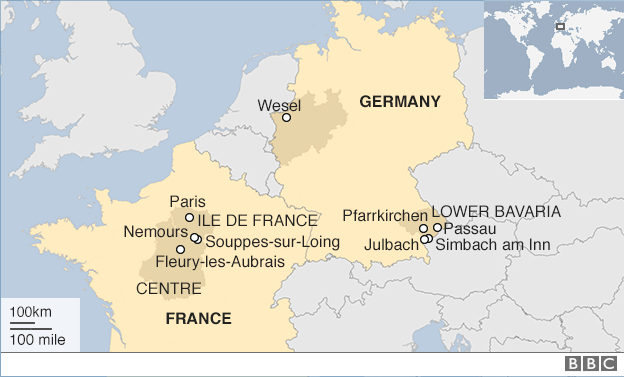
Flood-hit areas in France and Germany
Germany 'mourning'
In southern Germany some people remain missing.
Chancellor Angela Merkel said the country was in mourning for those who had lost their lives.
The worst incident was in Bavaria, where three women were found drowned in the basement of their house.
In Belgium, the body of a beekeeper in his 60s was found on Friday morning. He was caught in floodwaters while trying to protect his hives, the Associated Press reported.
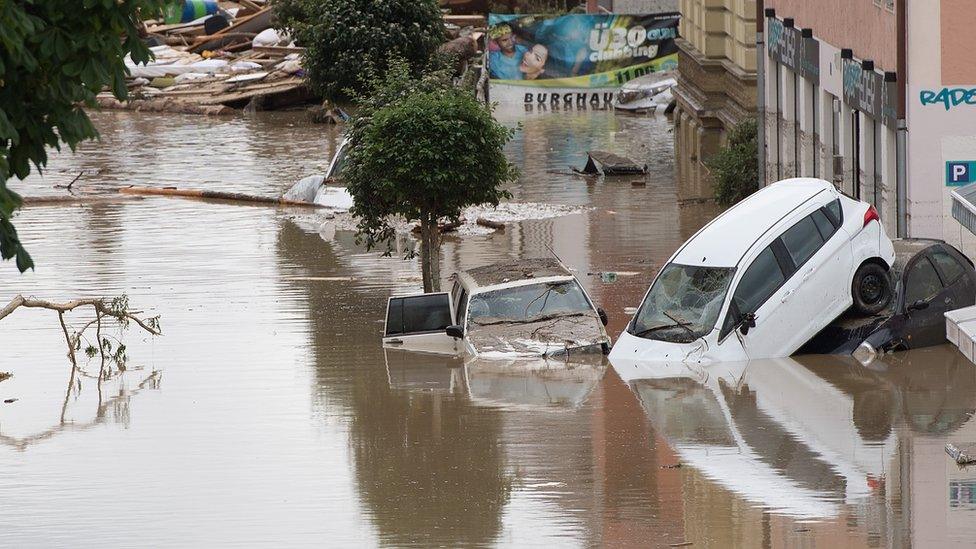
In Bavaria, the waters engulfed streets

- Published30 May 2016
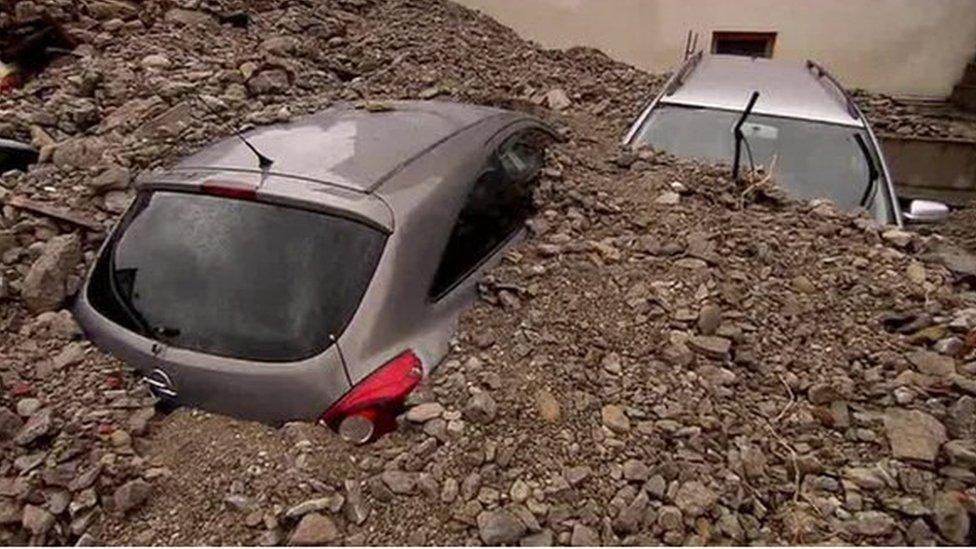
- Published31 May 2016
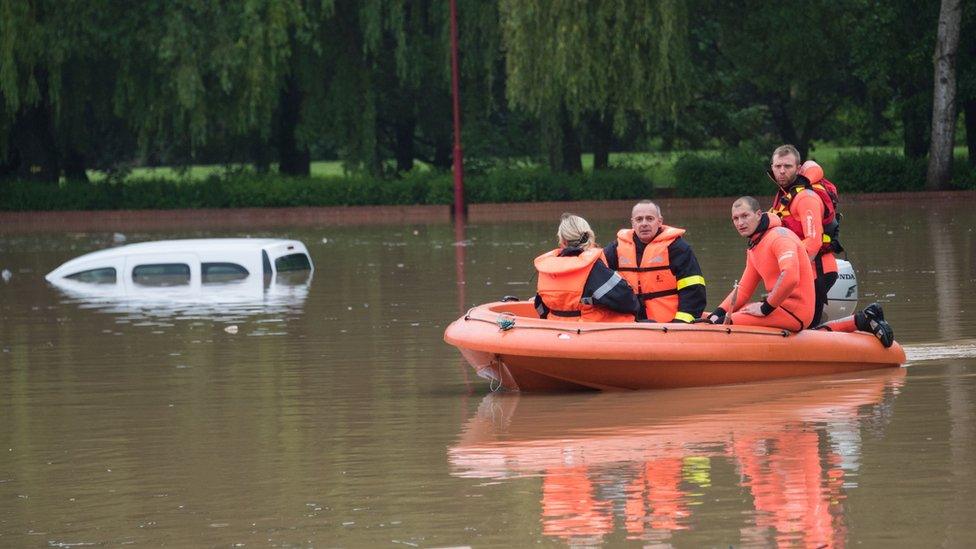
- Published3 June 2016
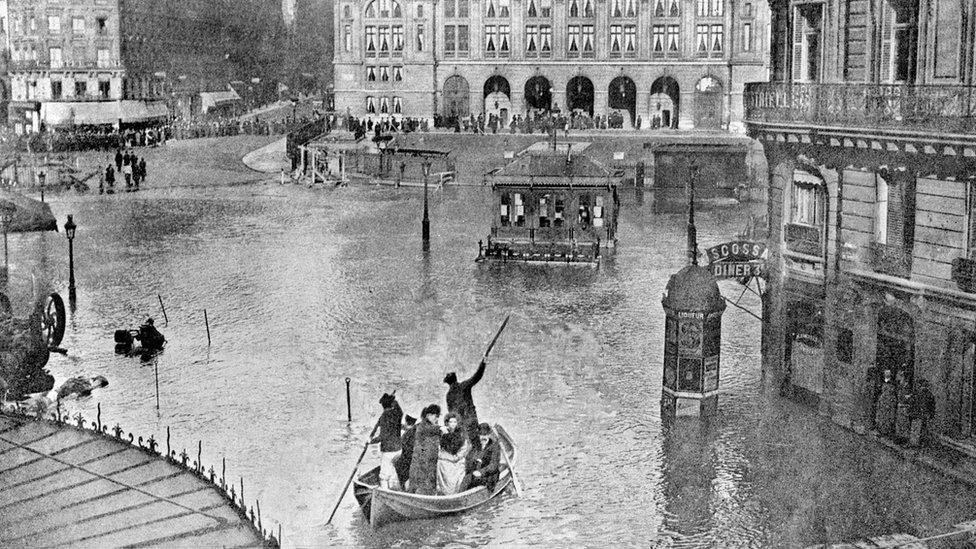
- Published3 June 2013
